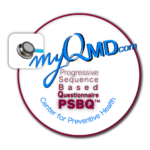The Nexus of Aging and Cancer: PhenoAge and Senolytics in Focus


Accelerated Aging and Cancer Risk
Research indicates a connection between accelerated biological aging and an increased risk of cancer in younger adults, suggesting significant impact from lifestyle, stress, and genetics.
Biological vs. Chronological Age
Chronological age measures years lived, while biological age assesses health indicators, showing that factors beyond age contribute to disease risk.
The Role of Biological Markers in Aging
Nine blood-based markers, including albumin and glucose, are used to determine biological age and assess cancer risk.
Understanding PhenoAge
PhenoAge is an algorithm that uses biomarkers to calculate biological age, providing insights into cancer risk.
Cancer Types Linked to Accelerated Aging
Accelerated aging is significantly associated with lung, stomach and intestinal, and uterine cancers, highlighting the need for prevention.
Implications for Young Adults
The rise of cancer in younger populations emphasizes the importance of addressing accelerated aging early.
Preventive Strategies and Lifestyle Interventions
Nutrition, exercise, and sleep can slow accelerated aging and reduce cancer risk, underscoring the power of prevention.
Senolytics and Future Cancer Prevention
Senolytics, drugs that target aging cells, hold promise for preventing cancer in those with signs of accelerated aging.
The Importance of Diverse and Longitudinal Research
Further research involving diverse populations and longitudinal studies is needed to understand aging and cancer risk better.
Call to Action for Early Screening and Research Participation
Early screening and research participation are critical in identifying and preventing early-onset cancers due to accelerated aging.
Credits: Adapted from Accelerated Aging Linked to Cancer Risk in Younger Adults, Research Shows. CNN, 7 April 2024. Available at CNN Health.
Credits: Adapted from Accelerated Aging Linked to Cancer Risk in Younger Adults, Research Shows. CNN, 7 April 2024. Available at CNN Health.


Leave a Reply
Your email is safe with us.